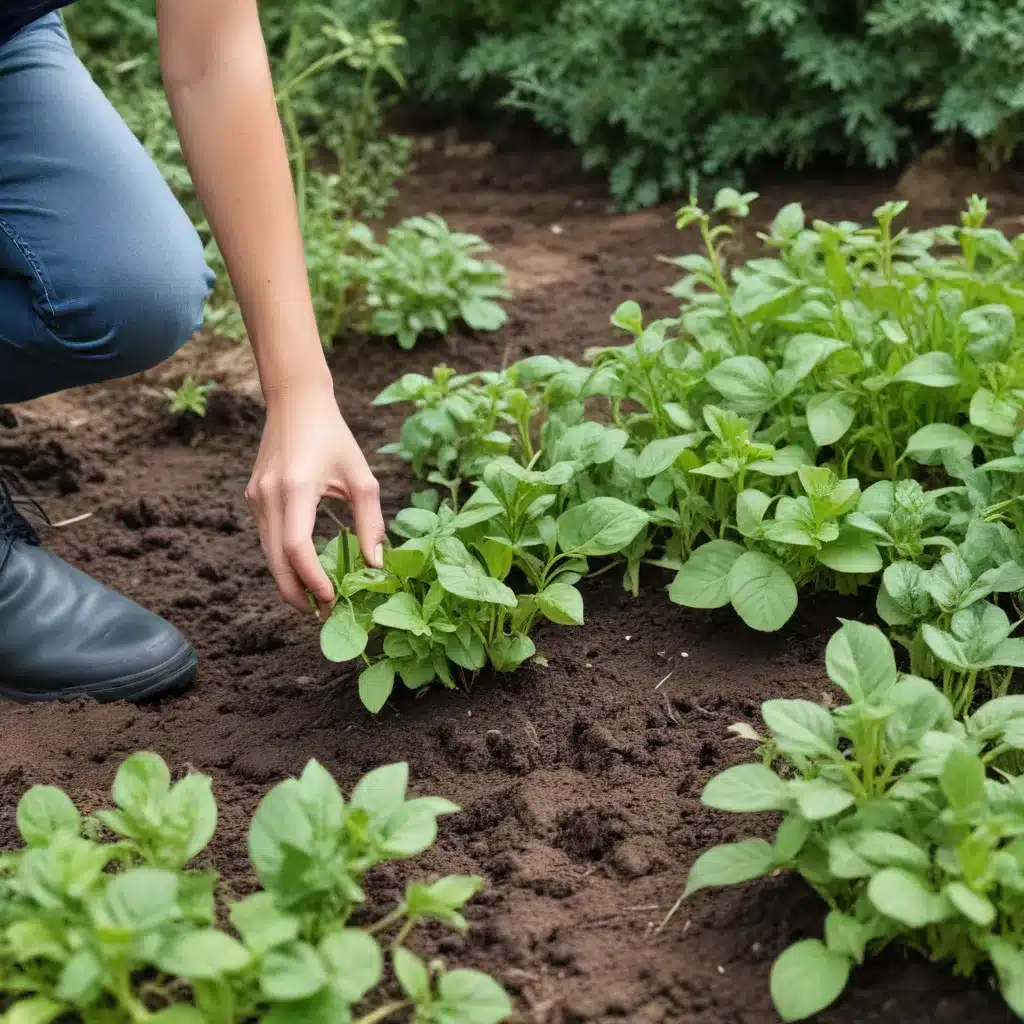
Sowing Seeds of Resilience: Adapting Your Garden to Climate Change
As a farm educator at Crooked Pines Farm, I’ve seen firsthand how the changing climate is impacting our gardens and the natural world around us. From extreme weather events to shifting growing seasons, the challenges seem daunting. But as gardeners, we have the power to adapt and cultivate resilience in the face of these changes. In this comprehensive guide, we’ll explore practical strategies to ensure your garden not only survives but thrives in the years to come.
Climate Change and Gardening
Impacts of Climate Change on Gardening
The effects of climate change are becoming increasingly apparent, and gardeners must be proactive in addressing these shifts. Shifting weather patterns have led to more unpredictable and volatile conditions, with some regions experiencing dramatic swings between drought and heavy rainfall. This can disrupt the delicate balance of our gardens, causing stress on plants and making it difficult to time planting and harvesting effectively.
Changes in precipitation patterns are also a significant concern. Many areas are seeing more intense and frequent rainfall events, leading to increased soil erosion and potential flooding. Conversely, prolonged droughts are becoming more common, straining water resources and challenging our ability to keep plants hydrated and thriving. These extreme weather events can wreak havoc on gardens, destroying crops, damaging infrastructure, and disrupting the natural ecosystem.
Adaptation Strategies for Gardeners
In the face of these challenges, gardeners must adopt a forward-thinking approach to ensure the long-term success of their gardens. One key strategy is to incorporate drought-tolerant plants into your landscape, selecting species that are adapted to withstand periods of limited water availability. By diversifying your plant selection, you can create a more resilient garden that can better withstand the ups and downs of the changing climate.
Implementing water conservation techniques, such as rainwater harvesting, greywater recycling, and efficient irrigation systems, can also help you manage limited water resources. These strategies not only reduce your garden’s water usage but also help mitigate the impact of heavy rainfall events, preventing soil erosion and nutrient loss.
Additionally, gardeners must be vigilant in monitoring and managing pests and diseases that may emerge or become more prevalent due to climate change. Incorporating integrated pest management practices and promoting biodiversity in your garden can help create a balanced ecosystem that is better equipped to withstand and recover from these challenges.
Resilient Gardening Practices
Soil Health and Fertility
At the heart of a resilient garden lies the health and fertility of the soil. By prioritizing organic matter management, you can improve the soil’s ability to retain moisture, support a diverse soil microbiome, and efficiently cycle essential nutrients. Incorporating compost, mulch, and cover crops can help build a thriving, living soil that is better equipped to withstand the stresses of climate change.
Plant Selection and Diversification
When it comes to selecting plants for your garden, prioritizing native and adaptive species can be a game-changer. These plants are naturally suited to the local climate and ecosystem, requiring fewer inputs and providing valuable resources for native wildlife. Additionally, cultivar selection that focuses on traits like drought tolerance, heat resistance, and disease resistance can further enhance the resilience of your garden.
Embracing polyculture planting, where a variety of complementary species are grown together, can also contribute to overall garden resilience. By mimicking natural ecosystems, you can create a more balanced, self-regulating system that is better equipped to withstand pests, diseases, and environmental stressors.
Sustainable Garden Design
Ecosystem-Based Approaches
Adopting permaculture principles in your garden design can help you create a truly resilient and self-sustaining system. By working in harmony with natural processes and focusing on habitat creation and biodiversity enhancement, you can foster a thriving ecosystem that is better able to adapt to the changing climate.
Water Management Systems
Effective water management is crucial for building climate resilience in your garden. Rainwater harvesting systems, such as rain barrels and cisterns, can help you store and utilize this precious resource when needed. Greywater recycling, which repurposes household wastewater for irrigation, can also reduce your reliance on municipal water supplies.
Employing efficient irrigation techniques, like drip systems and soaker hoses, can help you minimize water usage and ensure your plants receive the moisture they need, even during periods of drought.
Community-Driven Initiatives
Neighborhood Gardening Networks
Fostering a neighborhood gardening network can be a powerful tool in adapting to climate change. By sharing knowledge, resources, and collaborative problem-solving, gardeners can support one another and develop innovative solutions to the challenges they face. These networks can also serve as hubs for resource pooling, where tools, seeds, and other gardening supplies are shared among community members.
Educational Outreach Programs
Engaging the broader community through climate-smart gardening workshops and youth education initiatives can help spread awareness and equip more people with the knowledge and skills to create resilient gardens. Citizen science projects, where gardeners contribute data and observations, can also contribute to a deeper understanding of how climate change is impacting the local ecosystem.
As we navigate the uncharted waters of a changing climate, the role of gardeners becomes increasingly crucial. By adopting resilient gardening practices, designing sustainable landscapes, and fostering community-driven initiatives, we can not only adapt to the challenges but also play a vital role in mitigating the long-term impacts of climate change. At Crooked Pines Farm, we are committed to empowering gardeners to sow the seeds of resilience and cultivate a thriving, climate-resilient future.
To learn more about our farm’s educational resources and community programs, visit https://www.crookedpinesfarm.com.


